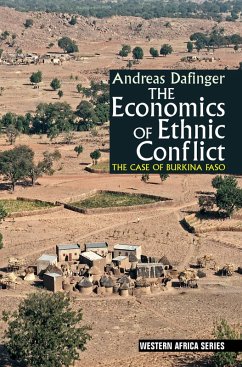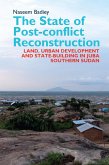Investigates development practice, civil organization formation and the increase of ethnically motivated conflicts over the past two decades in Western Africa.
Through richly detailed anthropological case studies of the rural economics and administrative policies in Burkina Faso, and reassessment of current models of conflict, resource management and modern administration, this book explores the current political, economic and social transformation of Western Africa.
Ethnic tensions, the case studies suggest, are a strategic part of social and economic local relations - a pattern that is repeated whenethnic stereotyping finds its way into the higher echelons of national administration and of international development cooperation. Conflicts are shown to be ethnicized by local and administrative elites, creating screens impenetrable to those involved in the states' formal administration, and behind which informal local economies thrive. In these 'concealed economies' individuals exploit the ethnic divide by hiding friendly and profitable inter-ethnic relations behind a rhetoric of ethnic tensions and staged conflict. Cultivating ties across ethnic divides is not limited, however, to rural relations but becomes common practice at almost all levels of national and civil administration.
Andreas Dafinger is Associate Professor of Social Anthropology at the Central European University, Budapest. He has worked on Burkina Faso for almost twenty years.
Through richly detailed anthropological case studies of the rural economics and administrative policies in Burkina Faso, and reassessment of current models of conflict, resource management and modern administration, this book explores the current political, economic and social transformation of Western Africa.
Ethnic tensions, the case studies suggest, are a strategic part of social and economic local relations - a pattern that is repeated whenethnic stereotyping finds its way into the higher echelons of national administration and of international development cooperation. Conflicts are shown to be ethnicized by local and administrative elites, creating screens impenetrable to those involved in the states' formal administration, and behind which informal local economies thrive. In these 'concealed economies' individuals exploit the ethnic divide by hiding friendly and profitable inter-ethnic relations behind a rhetoric of ethnic tensions and staged conflict. Cultivating ties across ethnic divides is not limited, however, to rural relations but becomes common practice at almost all levels of national and civil administration.
Andreas Dafinger is Associate Professor of Social Anthropology at the Central European University, Budapest. He has worked on Burkina Faso for almost twenty years.
Dieser Download kann aus rechtlichen Gründen nur mit Rechnungsadresse in A, D ausgeliefert werden.









